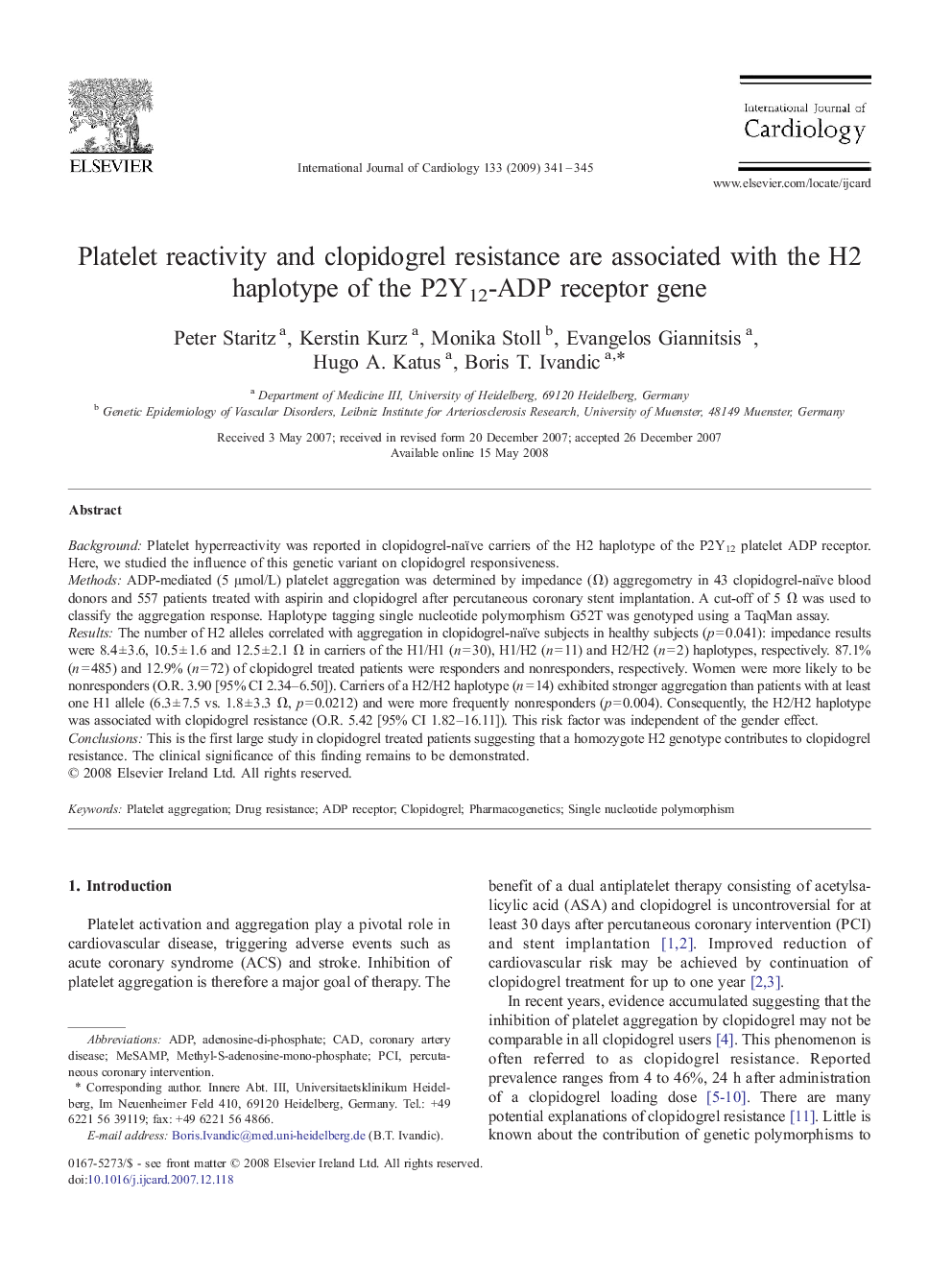| Article ID | Journal | Published Year | Pages | File Type |
|---|---|---|---|---|
| 2933686 | International Journal of Cardiology | 2009 | 5 Pages |
BackgroundPlatelet hyperreactivity was reported in clopidogrel-naϊve carriers of the H2 haplotype of the P2Y12 platelet ADP receptor. Here, we studied the influence of this genetic variant on clopidogrel responsiveness.MethodsADP-mediated (5 μmol/L) platelet aggregation was determined by impedance (Ω) aggregometry in 43 clopidogrel-naïve blood donors and 557 patients treated with aspirin and clopidogrel after percutaneous coronary stent implantation. A cut-off of 5 Ω was used to classify the aggregation response. Haplotype tagging single nucleotide polymorphism G52T was genotyped using a TaqMan assay.ResultsThe number of H2 alleles correlated with aggregation in clopidogrel-naïve subjects in healthy subjects (p = 0.041): impedance results were 8.4 ± 3.6, 10.5 ± 1.6 and 12.5 ± 2.1 Ω in carriers of the H1/H1 (n = 30), H1/H2 (n = 11) and H2/H2 (n = 2) haplotypes, respectively. 87.1% (n = 485) and 12.9% (n = 72) of clopidogrel treated patients were responders and nonresponders, respectively. Women were more likely to be nonresponders (O.R. 3.90 [95% CI 2.34–6.50]). Carriers of a H2/H2 haplotype (n = 14) exhibited stronger aggregation than patients with at least one H1 allele (6.3 ± 7.5 vs. 1.8 ± 3.3 Ω, p = 0.0212) and were more frequently nonresponders (p = 0.004). Consequently, the H2/H2 haplotype was associated with clopidogrel resistance (O.R. 5.42 [95% CI 1.82–16.11]). This risk factor was independent of the gender effect.ConclusionsThis is the first large study in clopidogrel treated patients suggesting that a homozygote H2 genotype contributes to clopidogrel resistance. The clinical significance of this finding remains to be demonstrated.
